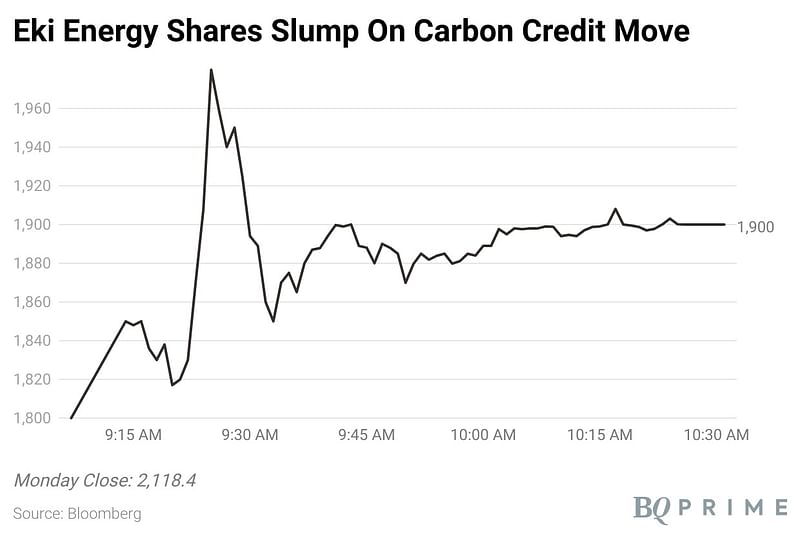The world’s largest carbon credit producer, EKI Energy, shares are down over 17% following India’s decision to ban the export of carbon credits.
India recently banned the sale of carbon credits to foreign entities until the nation meets its climate goals.
The Power and Energy Minister Raj Kumar Singh said that:
“Carbon credits are not going to be exported. No question… These credits will have to be generated by domestic companies, bought by domestic companies.”
But the minister didn’t give out details of timelines for when the ban takes effect. He also didn’t disclose when the nation’s domestic carbon market will start.
India’s New Climate Goals
The Indian government is seeking changes to its new energy conservation law to push through energy transition goals to help fight climate change. The legislation mandates the use of non-fossil sources such as green hydrogen, green ammonia, biomass, and ethanol.
At the same time, the country is also aiming to increase the share of clean energy in its electricity mix to 50% by 2030.
Meanwhile, India’s key climate goal is to cut emissions intensity by 45% from 2005 levels by the end of the decade. The nation seeks to cut 1 billion tonnes of emissions by the same period as a first step to reach such goal.
India is the fourth country restricting the sale of carbon credits in recent months after Papua New Guinea, Indonesia, and Uruguay.
EKI Energy Shares Going Down
Following Minister Singh’s statement on curbing the export of carbon credits, the shares of EKI Energy Services declined by over 17%.
Indian-based EKI Energy is one of the world’s largest carbon credits developers and suppliers. It is India’s largest carbon asset management company that works in the space of climate change, carbon credit, and sustainability solutions across the globe.
The company provides strategic solutions to help firms achieve their climate ambition. It has traded 100+ million offsets to date. It has also handled over 200 voluntary carbon projects.
The major carbon credit projects EKI supports include the use of renewables (e.g. solar, wind, and hydro). It also supported plenty of energy efficiency projects.
Last April, EKI announced a target to produce 1 billion carbon credits by 2027. This is along its goal to be net-zero by 2030 under a new brand identity called “Steering the Planet to Net-Zero”.
A key component of the firm’s net zero goal is speeding-up its community-based projects. Examples are biogas, tree plantation, and its own manufactured Improved CookStoves (ICS).
Community upliftment is the firm’s core business. But it also focuses on providing nature-based solutions for companies to help reduce their emissions.
EKI’s climate commitment will help India fast track its stride toward net zero.
But speculations abound about the government’s recent carbon credit export ban. Many claim it affected EKI’s shares performance as seen in the chart below.
Shares of EKI Energy slumped as much as 17.3%. The stock is set to further decline for the second day as per Bloomberg.
But according to EKI’s CEO, Manish Dabkara, the company:
“does not foresee the proposed amendments [changes in the bill] to have any impact on the export of credits in the voluntary carbon market… It will help the country to develop a robust carbon market and fast-track its journey to become net-zero”.
Dabkara said that such changes include zero restrictions on the sale of carbon credits developed in India to international global markets.
EKI’s decline in shares of over 17% is the most in three months since May 17.


